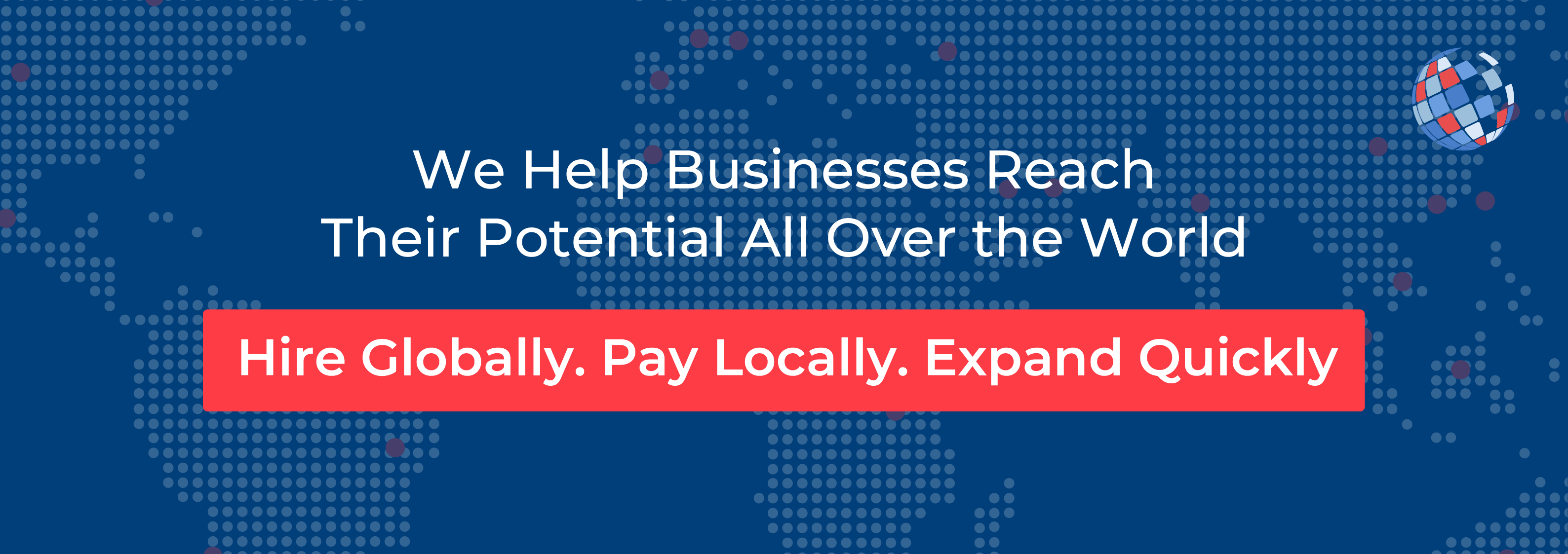International waters, also known as the high seas, are areas beyond any single nation’s jurisdiction. Contracting workers for operations in these regions—such as offshore oil rigs, shipping fleets, or research vessels—presents unique challenges. To remain hire and remain compliant workers, employers must understand the intricate mix of legal, financial, and operational frameworks involved in maritime contracting.
Multiple global services also exist to help employers remain compliant, but knowing what kind of support is needed can often be hard. That’s why this guide explores the many complex facets of contracting workers in international waters and suggests the right kind of support to help companies overcome a wide variety of issues.
Introduction to Contracting in International Waters
For many industries, operating in international waters provides access to lucrative opportunities, whether it’s resource extraction, transportation, or global scientific research. However, the lack of a unified legal framework and the complexities of multinational operations make effective workforce management critical. By understanding the intricacies of contracting workers in these settings, businesses can unlock opportunities while minimizing risks.
Beyond economic benefits, industries operating in international waters often contribute to advancements in science and technology. From deep-sea exploration to renewable energy projects, these ventures highlight the importance of skilled and adaptable workforces. Investing in workforce management solutions tailored for international waters ensures long-term success.

Tired of scrolling? Download a PDF version for easier offline reading and sharing with coworkers
Legal and Jurisdictional Challenges
Navigating Maritime Law
Maritime law, also known as admiralty law, governs most activities in international waters. These laws, established through conventions like the United Nations Convention on the Law of the Sea (UNCLOS), provide guidelines for employment, safety, and dispute resolution. However, maritime law often overlaps with the laws of the flag state—the country under whose flag a vessel is registered.
Employers must determine which regulations apply to their operations and ensure compliance with both international maritime conventions and flag state laws. For example, the safety and labor standards set by the International Labour Organization (ILO) may apply alongside national laws, creating additional layers of responsibility.
Partnering with legal experts like INS Global simplifies this process, reducing the risk of non-compliance. By leveraging professional guidance, businesses can ensure their operations meet the highest legal and ethical standards.
Determining Applicable Jurisdictions
Jurisdictional ambiguity is a common challenge when contracting workers in international waters. The applicable laws may depend on several factors beyond the flag state of the vessel, such as the worker’s nationality or the employer’s country of incorporation.
For instance, a ship registered in Panama employing a worker from the Philippines for a Norwegian-owned company introduces multiple legal frameworks. Employers must clearly define the governing law and jurisdiction in contracts to avoid disputes and ensure compliance.
Additionally, employers must stay informed about evolving maritime regulations. Changes in international conventions or national policies can impact operations, making it crucial to have a proactive approach to compliance.
Employment Contracts for International Waters
Drafting Legally Enforceable Agreements
Contracts for maritime workers must be meticulously crafted to address the unique challenges of international waters. Key elements include job descriptions, compensation, benefits, and duration of employment. Additionally, contracts should specify the governing law and jurisdiction to avoid disputes.
Employers should also include provisions for unforeseen circumstances, such as evacuation due to adverse weather or emergencies. By addressing these potential scenarios in contracts, businesses can reduce operational disruptions and protect worker rights.
A third party’s expertise can ensure contracts are comprehensive, enforceable, and compliant with international standards, offering peace of mind for both employers and employees.
Addressing Dispute Resolution Mechanisms
Disputes in international waters can be complex due to jurisdictional uncertainties. To mitigate risks, contracts should include clear dispute resolution mechanisms, such as arbitration clauses or mediation agreements. Employers may also consider designating a neutral jurisdiction for resolving disputes.
Alternative dispute resolution (ADR) methods like arbitration may also often preferred in maritime contexts due to their flexibility and international recognition. However, as such methods remain less well understood, legal support helps businesses incorporate ADR mechanisms into their contracts, ensuring fair and efficient resolution processes.

Taxation and Financial Implications
Tax Obligations for Employers and Employees
Taxation in international waters can depend on multiple factors, such as the employee’s residency, the employer’s base, and applicable tax treaties. Employers must determine whether workers are subject to income tax in their home country or the flag state and ensure compliance with payroll tax requirements.
For instance, some countries have specific rules for seafarers, offering exemptions or reduced tax rates under certain conditions. Employers must carefully review these rules to avoid overpayment or penalties. Global payroll solutions can ensure accurate deductions and filings, reducing financial risks for both employers and employees.
Avoiding Double Taxation
Without proper planning, employees may face double taxation, where income is taxed in multiple jurisdictions. Leveraging double taxation agreements (DTAs) between countries can mitigate this issue, but understanding and applying these agreements requires in-depth knowledge of international tax law.
Tax experts simplify this process by ensuring compliance with DTAs and optimizing tax structures for both employers and employees, ultimately saving costs and reducing administrative burdens.
Handling Multi-Currency Transactions
Managing payroll in international waters often involves multi-currency transactions, especially for diverse, global teams. Employers should account for exchange rate fluctuations, transfer fees, and compliance with currency regulations.
Multi-currency payroll platforms help streamline the process, ensuring timely payments in the worker’s preferred currency. Additionally, employers should establish policies for transparent communication regarding currency-related deductions or adjustments. This clarity fosters trust and reduces misunderstandings.
Health, Safety, and Living Conditions
Ensuring Compliance with Maritime Safety Standards
Worker safety is a top priority in international waters. Employers must comply with maritime safety standards set by organizations like the International Maritime Organization (IMO). These include provisions for emergency protocols, protective equipment, and regular safety drills.
Non-compliance can result in severe penalties and reputational damage. Regular audits, staff training, and investment in safety equipment ensure adherence to these standards. Partnering with experts ensures adherence to safety regulations, safeguarding both employees and operations.
Safety measures should also account for mental health challenges associated with long periods at sea. Providing access to counseling services or mental health resources is an essential aspect of comprehensive safety protocols.
Providing Adequate Housing and Amenities
Living conditions for maritime workers significantly impact productivity and morale. Employers must provide adequate housing, sanitation, and amenities to ensure worker well-being. This includes clean sleeping quarters, access to nutritious meals, and recreational facilities for extended stays offshore.
Providing internet access, leisure activities, and wellness programs can further improve living conditions, fostering loyalty and job satisfaction among workers. High-quality living standards demonstrate a commitment to employee welfare, reducing turnover and improving recruitment efforts.

Recruitment Strategies for International Waters
Identifying Skilled Maritime Workers
Recruiting for maritime roles requires a focus on technical expertise, physical fitness, and adaptability. Employers should seek candidates with certifications such as the Standards of Training, Certification, and Watchkeeping (STCW) to ensure qualifications meet international standards.
In addition to technical skills, employers should assess soft skills like communication, problem-solving, and teamwork, which are essential for thriving in remote and challenging environments. Partnering with specialized recruitment agencies or using a staffing agency’s extensive network can help identify skilled candidates quickly and efficiently.
Partnering with Global Recruitment Agencies
Global recruitment agencies provide access to a diverse pool of qualified candidates, streamlining the hiring process. These agencies handle initial screenings, background checks, and compliance verification, saving employers time and resources.
Recruitment services offer tailored solutions for maritime industries, ensuring businesses find the right talent for their unique needs. These partnerships also enhance cultural fit, reducing the risk of turnover and improving operational harmony.
Managing Compensation and Benefits
Structuring Competitive Pay Packages
Competitive compensation is essential to attract and retain top talent for maritime roles. Employers should consider factors such as job difficulty, location, and duration when structuring pay packages. Additional allowances for hazardous or remote work can further incentivize workers.
Performance-based incentives and bonuses can also boost productivity and morale, creating a mutually beneficial arrangement for employers and employees.
Offering Benefits for Remote and Hazardous Work
Benefits for maritime workers should include comprehensive health insurance, retirement plans, and allowances for travel and communication. Providing mental health support and wellness programs is particularly important for remote and high-stress roles.
Offering well-rounded benefits packages enhances employee satisfaction and demonstrates a commitment to their well-being. Tailored benefits also improve retention, helping businesses maintain a stable and motivated workforce.

Ethical and Cultural Considerations
Ensuring Fair Treatment and Equal Opportunities
Ethical hiring practices are crucial for maintaining a positive reputation in international waters. Employers must ensure fair treatment, equal pay, and non-discrimination for all workers, regardless of nationality or background.
Employers should also establish clear grievance mechanisms, allowing workers to report concerns without fear of retaliation. Transparent and ethical practices contribute to a positive work environment and long-term success.
Respecting Cultural Diversity Among Workers
Maritime teams often consist of individuals from diverse cultural backgrounds. Promoting inclusivity and cultural sensitivity fosters collaboration and harmony, contributing to a more effective workforce.
Providing cross-cultural training programs can improve communication and teamwork, ensuring that diversity becomes an asset rather than a challenge.
Best Practices for Contracting in International Waters
Consulting with Maritime Legal Experts
Given the complexities of maritime employment, consulting with legal experts specializing in maritime law is essential. These professionals provide guidance on compliance, risk management, and contract enforcement, ensuring smooth operations.
Leveraging Technology for Seamless Operations
Digital tools such as payroll platforms, communication software, and safety monitoring systems enhance operational efficiency in international waters. Leveraging technology ensures seamless management of remote teams or travelling workers, even in challenging environments like the open ocean. Platforms that integrate compliance monitoring and workforce analytics further improve decision-making.
Employers should also consider investing in real-time tracking and reporting systems for enhanced oversight of their maritime workforce.
Conclusion: Opportunities and Challenges of Contracting in International Waters
Recruiting and contracting workers in international waters offers significant opportunities but comes with unique challenges. By addressing legal, financial, and operational complexities, businesses can unlock the full potential of offshore projects. INS Global’s comprehensive solutions simplify cross-border hiring and compliance, empowering businesses to thrive in maritime operations.
Contact INS Global today to navigate the complexities of maritime employment and achieve success in international waters.


SHARE